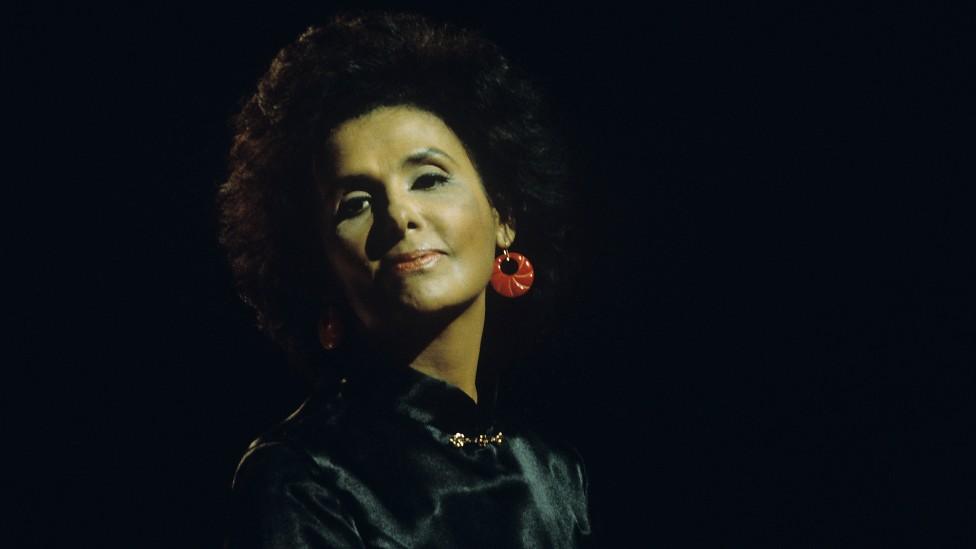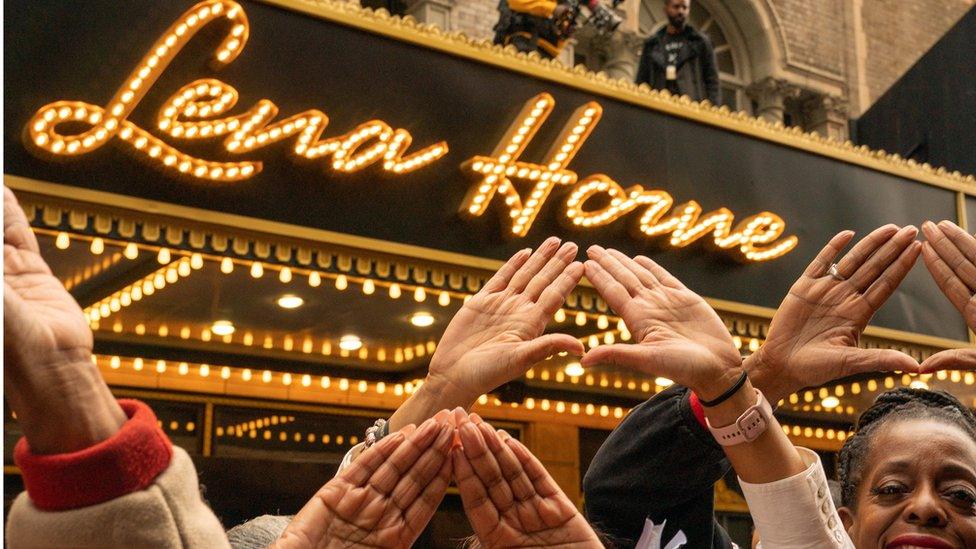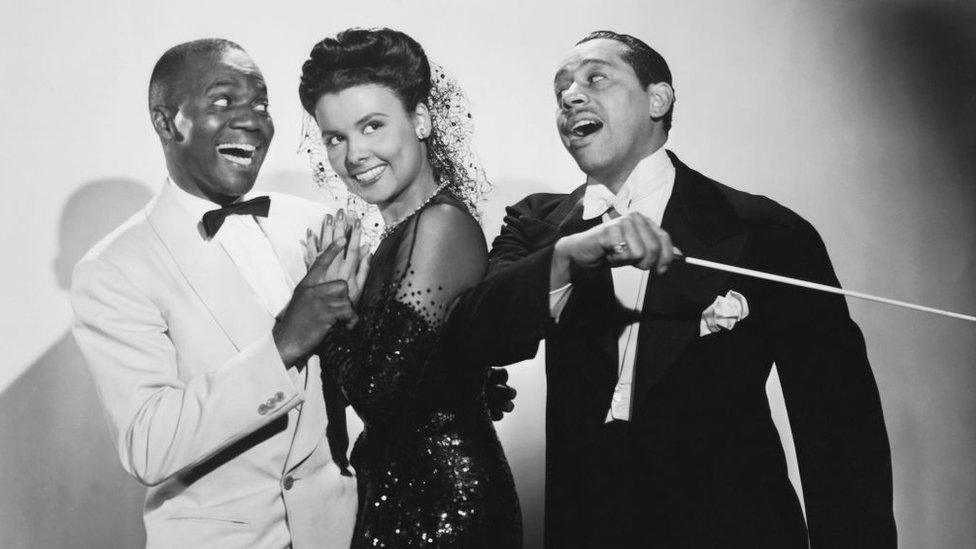Lena Horne first black actress to have Broadway theatre named in her honour
- Published

Lena Horne's 1981 show The Lady And Her Music is the longest-running one-woman show in Broadway history
Actress Lena Horne has become the first black woman to have a Broadway theatre named in her honour.
The theatre, on West 47th Street, was built in 1926 and is currently hosting the hit British musical Six.
It comes a couple of weeks after another Broadway theatre was named after Star Wars actor James Earl Jones.
Horne, who died in 2010, battled racial segregation to win a major Hollywood film contract and later found international fame as a singer.
She later became the first black woman to be nominated for a Tony Award, Broadway theatre's highest honour, for her starring role in the 1957 calypso musical Jamaica.
In 1981, she received a special Tony Award for Lena Horne: The Lady and Her Music, a one-woman Broadway show in which she sang and discussed the ups and downs of her life.
"She opened so many doors for us that we as people of colour can thank her for being a beacon of light," singer and actress Vanessa Williams told ABC News. , external
Horne's granddaughter, Jenny Lumet, attended Wednesday night's unveiling and said she was overwhelmed by the honour.
"I didn't quite realise how emotional it was until I started speaking about it," she said.
"My grandmother would've pretended not to be as thrilled as she was. But she would have been completely, completely thrilled."

The venue's billboard was officially unveiled on Wednesday
Born in 1917, Horne got her start in the chorus line of Harlem's famed Cotton Club when she was a teenager. She soon became a popular singer, and MGM signed her to star in its movie musicals in 1942.
She was not the first black woman to land a studio contract - MGM had signed actress Nina Mae McKinney for five years in 1929 - but she was the first to make an impact.
In 1943, she played Selina Rogers in the all-black film musical Stormy Weather, and the title song became both a major hit and her signature tune.
However, she never became a fully-fledged film star. She later recalled that her appearances in all-star musicals like Two Girls And A Sailor and Ziegfeld Follies often amounted to a few minutes of screen time that could be easily cut when the movies played in America's southern states.
When Horne's contract ended, she became a successful theatre star, recording artist and civil rights advocate, taking part in the historic March on Washington in 1963 where Martin Luther King delivered his "I have a dream" speech.
She won four Grammy Awards, including a lifetime achievement prize in 1989, while her 1957 live album, Lena Horne at the Waldorf-Astoria, was the best-selling record by a female singer in RCA Victor's history.
When actress Halle Berry became the first black woman to win a best actress Oscar in 2002, she cited Horne as a pioneer who had paved the way for her breakthrough.
However, Horne often downplayed the scale of her achievements.
"I was unique in that I was a kind of black that white people could accept," she once said.
"I was their daydream. I had the worst kind of acceptance because it was never for how great I was or what I contributed. It was because of the way I looked."

Stormy Weather was one of Lena Horne's best-received films
The newly-christened Lena Horne Theater was originally the Mansfield Theater. It was renamed in honour of the New York Times critic Justin Brooks Atkinson in 1960.
Horne's name was selected to fulfil a promise made by Broadway's three biggest landlords when black artists pressed for greater recognition in the wake of the 2020 Black Lives Matter protests.
In September, the Shubert Organisation renamed its Cort Theater in honour two-time Tony Award winner James Earl Jones.
"It means a lot. It's too heavy for me to try to define," said the actor, who has appeared in 21 Broadway shows, and is best-known as the voice of Darth Vader.
Jujamcyn Theaters already had a venue named for American playwright August Wilson, who died in 2005.
New York City Mayor Eric Adams welcomed the changes to what is known as The Great White Way - the Broadway district that houses 41 professional theatres.
"What we are saying is that The Great White Way must have some chocolate on it," he told reporters.